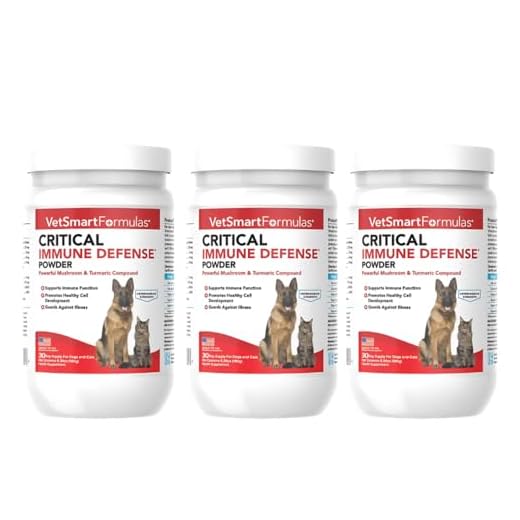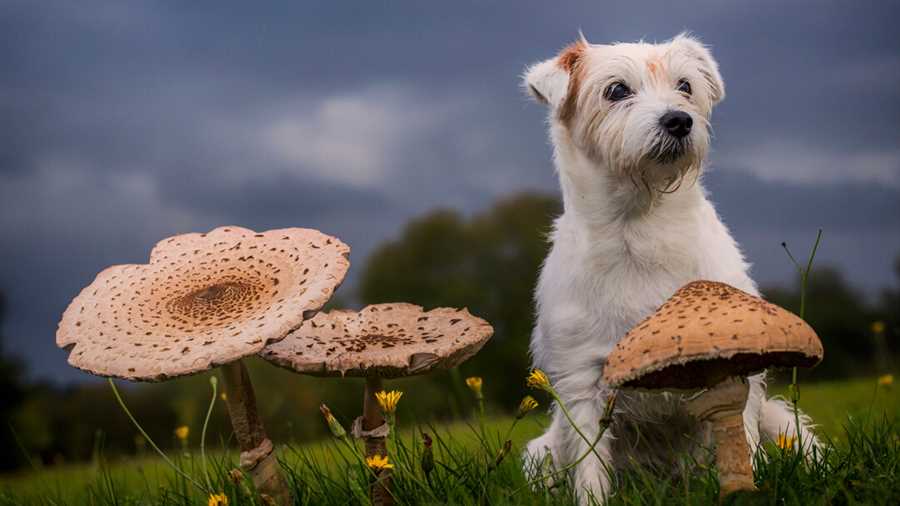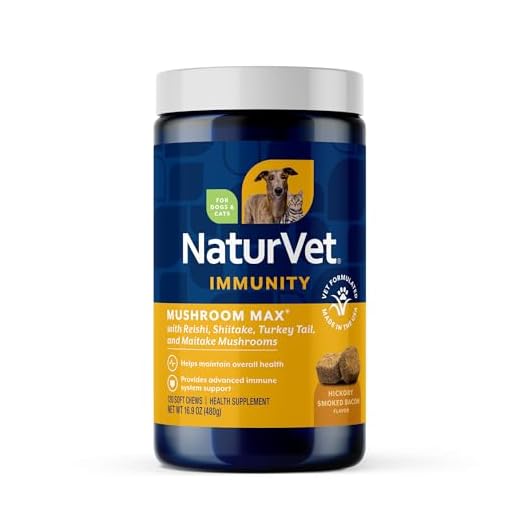



Mushrooms are a popular ingredient in many dishes, and you may wonder if it’s safe to share them with your furry friend. While some mushrooms are safe for dogs to consume, others can be toxic and potentially harmful. It’s essential to know which types of mushrooms are safe and to take precautions when feeding them to your dog.
Cooked mushrooms can be a tasty treat for your dog, but it’s crucial to ensure they are cooked and prepared properly. Raw mushrooms contain a type of toxin that can be harmful to dogs, but cooking them can remove this toxin, making them safer to eat. However, it’s still important to feed your dog cooked mushrooms in moderation and avoid any additional seasonings or ingredients that could be harmful.
In addition to being properly cooked, it’s essential to choose the right type of mushrooms for your dog. While some varieties like white button and cremini mushrooms are generally safe, others like wild mushrooms can be toxic and cause serious health issues. It’s best to stick with mushrooms that you can find in the grocery store and avoid foraging for wild mushrooms, as it’s challenging to identify which ones are safe for dogs.
If you decide to share cooked mushrooms with your dog, start by offering small amounts to see how they tolerate them. Watch for any signs of digestive upset, such as vomiting or diarrhea, and discontinue feeding mushrooms if these symptoms occur. Remember, each dog is different, and what is safe for one may not be safe for another. Consult with your veterinarian before introducing any new food into your dog’s diet to ensure their safety and well-being.
Can Dogs Eat Cooked Mushrooms
As a dog owner, you may wonder if it’s safe to share cooked mushrooms with your furry friend. While mushrooms can be a tasty addition to our meals, not all types are safe for dogs to consume.
Types of Mushrooms to Avoid
It’s important to note that not all mushrooms are safe for dogs to eat. Some species can be toxic and cause various health issues. Here are a few types of mushrooms that you should always avoid feeding to your dog:
- Amanita muscaria
- Amanita phalloides
- Amanita pantherina
- Amanita virosa
- Amanita gemmata
These mushrooms, commonly known as death cap mushrooms, contain toxic substances that can cause severe reactions in dogs if ingested.
Potential Risks
While some mushrooms are safe for dogs to eat, it’s crucial to be cautious. Consumption of toxic mushrooms can lead to symptoms such as vomiting, diarrhea, abdominal pain, tremors, seizures, liver damage, and even death in severe cases.
Even cooked mushrooms that are safe for humans may not be suitable for your furry friend. They can be challenging to digest and may cause gastrointestinal upset or allergic reactions in some dogs. Additionally, the seasonings and oils used in cooking can be harmful to dogs.
Safe Mushrooms for Dogs
Not all mushrooms are toxic to dogs, and some can actually provide health benefits. If you want to share mushrooms with your dog, it’s important to stick to safe options, such as:
- Portobello mushrooms
- Button mushrooms
- Shiitake mushrooms
It’s essential to cook these mushrooms thoroughly before offering them to your dog. Raw mushrooms can be difficult for dogs to digest and may cause gastrointestinal issues.
Remember, it’s always best to consult with your veterinarian before introducing cooked mushrooms or any new foods into your dog’s diet. They can provide personalized advice based on your dog’s specific needs and health conditions.
In conclusion, while some mushrooms are safe for dogs to eat, it’s crucial to be aware of the types that are toxic. Stick to safe options, cook them properly, and consult with your vet to ensure your dog’s well-being.
Are Cooked Mushrooms Safe for Dogs?
Many pet owners may wonder if it is safe to feed their dogs cooked mushrooms. While mushrooms can be a healthy addition to a human’s diet, they can pose serious risks to dogs if not prepared and served properly.
Some species of mushrooms, such as the Amanita phalloides, commonly known as the death cap mushroom, are highly toxic to both humans and dogs. Even small amounts can cause liver damage or even death. Therefore, it is crucial to never feed your dog any wild mushrooms.
When it comes to cooked mushrooms, the safety depends on the type of mushroom and the way it is prepared. Certain cooked mushrooms, such as white button mushrooms, can be safe for dogs to consume in moderation. However, it is essential to remove any spices, oils, or seasonings that may be harmful to dogs.
Before introducing cooked mushrooms into your dog’s diet, it is best to consult with your veterinarian. They can provide guidance on which types of mushrooms are safe and how to properly prepare them. Additionally, they can assess your dog’s specific dietary needs and determine if mushrooms are a suitable and beneficial addition to their meals.
Remember, every dog is different, and what may be safe for one dog may not be for another. It is important to monitor your dog for any signs of an adverse reaction after consuming cooked mushrooms, such as vomiting, diarrhea, or lethargy. If you notice any concerning symptoms, contact your veterinarian immediately.
In conclusion, cooked mushrooms can be safe for dogs when prepared and served correctly. However, it is crucial to take precautions, consult with a veterinarian, and closely monitor your dog’s response to ensure their safety and well-being.
Potential Risks of Feeding Dogs Cooked Mushrooms

While some types of mushrooms are safe for dogs to consume, it is important to be aware of the potential risks associated with feeding them cooked mushrooms. Here are some potential risks:
- Toxicity: Certain types of mushrooms that are safe for humans can be toxic to dogs. Cooking mushrooms does not eliminate their potential toxins, so it is important to ensure that the mushrooms you feed your dog are safe for canine consumption.
- Digestive Issues: Dogs have different digestive systems compared to humans, and they may have difficulty breaking down and digesting mushrooms. Feeding them cooked mushrooms can potentially result in digestive issues such as vomiting, diarrhea, or stomach discomfort.
- Allergic Reactions: Some dogs may be allergic to mushrooms. Feeding them cooked mushrooms can trigger allergic reactions such as itching, hives, or difficulty breathing. If you suspect your dog has an allergy to mushrooms, it is best to avoid feeding them to your pet.
- Choking Hazard: Depending on the size and texture of the mushroom, there is a risk of dogs choking on cooked mushrooms. It is important to cut mushrooms into small, bite-sized pieces to reduce the risk of choking.
- Interactions with Medications: Mushrooms can potentially interact with certain medications that your dog may be taking. It is important to consult with your veterinarian before feeding your dog cooked mushrooms if they are on any medications.
As a responsible dog owner, it is crucial to prioritize your dog’s health and well-being. While mushrooms can be a delicious and nutritious addition to human meals, it is best to consult with your veterinarian before sharing cooked mushrooms with your furry friend to ensure their safety.
Symptoms of Mushroom Toxicity in Dogs
Feeding dogs mushrooms can be dangerous as some varieties are toxic to them. If your dog consumes a poisonous mushroom, it is important to identify the symptoms of mushroom toxicity in order to seek immediate veterinary care. Symptoms may vary depending on the type and amount of mushroom ingested, and early detection is crucial for successful treatment.
Early Symptoms:
The initial signs of mushroom poisoning in dogs are typically seen within 6-12 hours after ingestion. Common early symptoms include:
- Gastrointestinal Issues: Vomiting, diarrhea, abdominal pain, and excessive drooling are common.
- Lethargy: Dogs may appear weak, tired, or have a lack of energy.
- Loss of Appetite: Refusing to eat or decreased interest in food can be an indicator of mushroom toxicity.
Advanced Symptoms:
If left untreated, mushroom toxicity can lead to more severe symptoms. These may include:
- Neurological Issues: Dogs may experience seizures, tremors, confusion, and disorientation.
- Jaundice: Yellowing of the skin and eyes can occur due to liver damage.
- Irregular Heartbeat: Mushroom poisoning can cause abnormalities in heart rate and rhythm.
- Unconsciousness: In severe cases, dogs may lose consciousness or slip into a coma.
If you suspect your dog has ingested mushrooms, it is crucial to take them to a veterinarian immediately. Do not induce vomiting or administer any medications without professional guidance, as it may worsen the situation.
Prevention is always the best approach when it comes to mushroom toxicity. Keep your dog away from wild mushrooms and be cautious of any mushrooms growing in your garden. If you are unsure about the safety of a mushroom, consult with a veterinarian before feeding it to your dog.
What to Do If Your Dog Accidentally Eats Cooked Mushrooms
If your dog accidentally eats cooked mushrooms, it is important to take immediate action. While some species of mushrooms are safe for dogs to consume, others can be highly toxic and potentially fatal. Here are some steps you can take:
1. Remove any remaining mushrooms: If there are any mushrooms left, make sure to remove them immediately to prevent further ingestion.
2. Identify the type of mushroom: If possible, try to identify the type of mushroom your dog has consumed. Take note of the size, shape, color, and any distinctive features. This information can be helpful for your veterinarian in determining the potential toxicity.
3. Contact your veterinarian: Call your veterinarian as soon as possible and inform them about the situation. They will be able to provide guidance on the next steps to take and may ask for additional information about the mushroom your dog ate.
4. Monitor your dog’s symptoms: Keep a close eye on your dog for any signs of mushroom poisoning, such as vomiting, diarrhea, drooling, weakness, tremors, or seizures. If you notice any unusual symptoms, inform your veterinarian immediately.
5. Follow your veterinarian’s advice: Your veterinarian may recommend inducing vomiting or administering activated charcoal to help remove any remaining toxins from your dog’s system. Follow their instructions carefully and bring your dog in for an examination if necessary.
6. Prevent future incidents: To avoid similar accidents in the future, make sure to keep mushrooms out of your dog’s reach. Keep an eye on your surroundings during walks and discourage your dog from foraging or eating anything they find on the ground.
Remember, it is always better to be cautious and seek veterinary assistance when your dog consumes something potentially harmful. The sooner you take action, the better the chances of a positive outcome for your furry friend.
Question-answer
Can dogs eat cooked mushrooms?
Yes, dogs can eat certain types of cooked mushrooms in moderation, but it’s important to know which ones are safe and which ones are toxic to dogs.
Are all cooked mushrooms safe for dogs?
No, not all cooked mushrooms are safe for dogs. Some mushrooms can be toxic to dogs and cause severe reactions or even be lethal. It’s important to know which types of mushrooms are safe and which ones to avoid.
What types of cooked mushrooms can dogs eat?
Dogs can safely consume certain types of cooked mushrooms, such as button mushrooms, portobello mushrooms, and shiitake mushrooms. However, it’s important to give them in moderation and always consult with a veterinarian before including mushrooms in your dog’s diet.
What types of cooked mushrooms are toxic to dogs?
There are several types of cooked mushrooms that are toxic to dogs, such as wild mushrooms, Amanita mushrooms, and certain varieties of mushrooms with toxic properties. It’s best to avoid feeding any unknown mushrooms to your dog to prevent potential poisoning.







